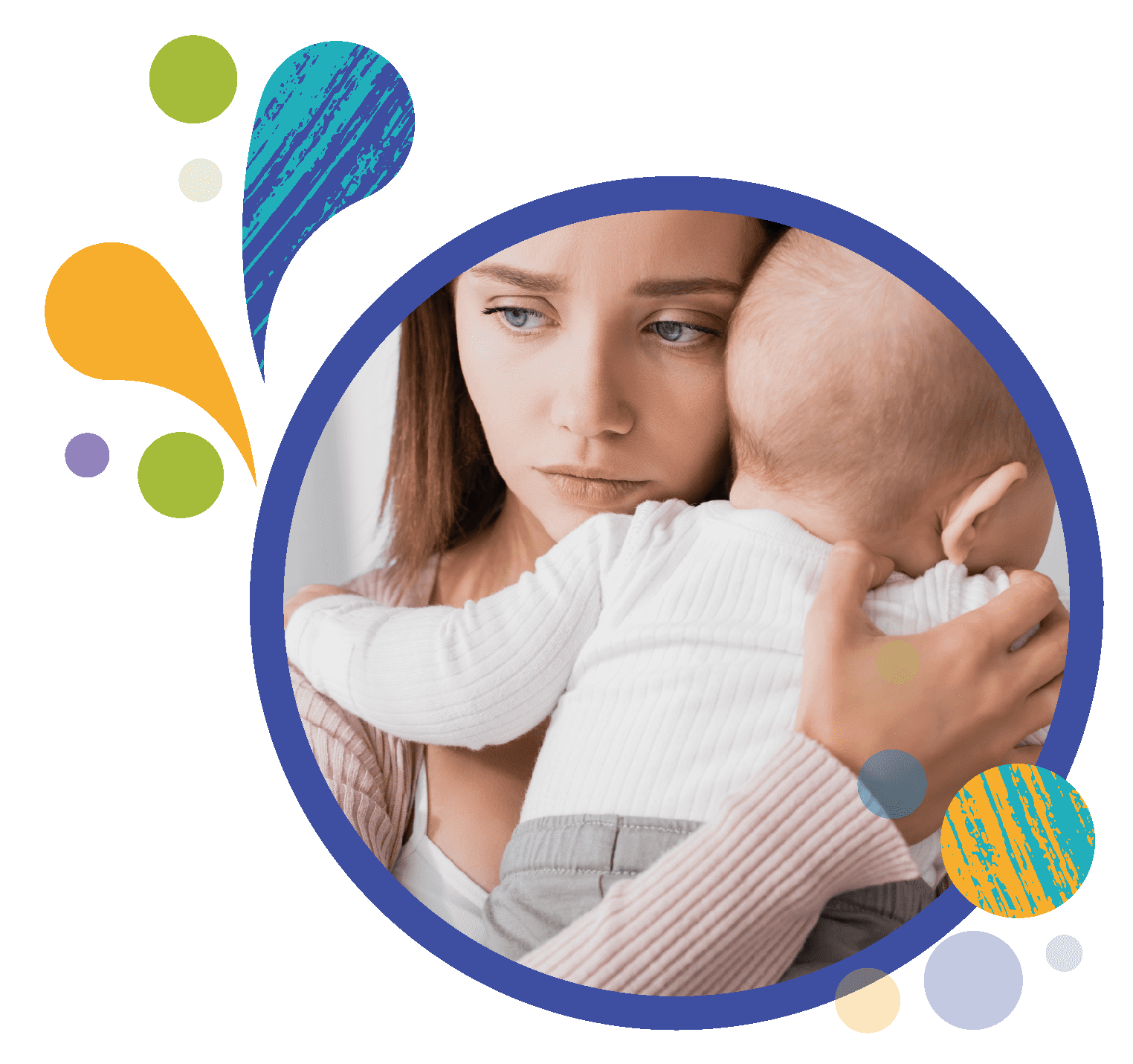Healthy Families

Asking for help can be difficult, but if you are concerned you or your significant other may have postpartum depression we encourage you to reach out to your or your baby’s health care provider; they will help you determine the best next step.
Our Healthy Family Program at the Youth Clinic was designed to help families who may be experiencing Postpartum Depression and other Postpartum mood disorders such as anxiety. Our goal is to help you access support within the community (health care providers, mental health care providers, support groups, etc.), as well as to provide one-on-one support for you as you care for your new baby.
Ask your provider for a referral or call 970.267.9510 to leave a message for our Healthy Families Team.

“Baby Blues” vs. Postpartum Depression
Many women experience symptoms of the “baby blues” after childbirth, which can include:
- Frequent Mood Swings
- Crying for No Reason
- Anxiety
- Restlessness
- Irritability or Anger
- Trouble Sleeping or Eating
The “baby blues” are caused, in part, by rapid hormone changes within your body after giving birth. Fatigue and the demands of caring for your new baby can also contribute. Symptoms usually begin 2-3 days after delivery and last 2-3 weeks; if symptoms last longer or seem overwhelming, you may be experiencing Postpartum Depression (PPD).
Postpartum Depression is more serious than the “baby blues”.
Symptoms of postpartum depression can start anytime during pregnancy or the first year after the baby’s birth. They differ for everyone, and might include:
- Sadness or Crying
- Irritability, Anger, or Restlessness
- Constant Worry or the Feeling that Something Bad is Going to Happen
- Lack of Interest in the Baby or Difficulty Bonding with the Baby
- Changes in Appetite or Sleep
- Feelings of Worthlessness, Hopelessness, or Guilt
- Loss of Interest, Joy, or Pleasure in the Things You Used to Enjoy
- Thoughts of Harming the Baby or Yourself
Postpartum Depression is not the result of something you did or did not do. If you are experiencing these feelings, you are not alone! It is estimated that 1 out of 7 women experience postpartum depression in the first year after giving birth. It is not uncommon for fathers, partners, or other caregivers to experience symptoms, as well. Emotional changes after delivery are not limited to depression. Other emotions women may experience include anxiety, obsessive tendencies, post-traumatic stress related to their pregnancy or delivery, and mood changes related to bipolar disorder.

If you are having thoughts of harming yourself or your baby, please call your doctor or 911 immediately.
Thankfully, postpartum depression can be treated successfully. Treatment options vary depending on the severity of symptoms but can include:
- Self-Care Strategies
- Counseling
- Medication
Self-Care Ideas
Rest/sleep as much as you can.
Spend time outdoors.
Ask family or friends for help with household chores or errands.
Talk with friends, especially other new parents.
Try to spend some alone time with your partner.
Go to a support group for new parents.
